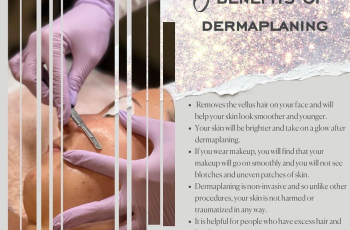
Which Anti-Pollution Mask is Best?
With sales in anti-pollution skincare products increasing to over 75% last year it is very much apparent we have all realised that pollution has a huge impact on your skin, and we are prepared to tackle it! Many of us have incorporated anti-pollution products into our skincare routine already, but for those of you who haven’t than using an anti-pollution face mask would be the next step to take in helping the skin to detoxify and restore balance in your skin, but which anti-pollution mask is best? Let’s find out!
What is anti-pollution skincare?
Anti-pollution skincare has gained a lot of popularity in recent years. With global warming and pollution becoming a hot topic for many obvious reasons, but it is now we have turned our attention on how all of these environmental aggressors are impacting on the skin. We have a full blog post about how pollution can affect your skin and how to counteract it for you to find out more.
Tiny particles of matter that are present constantly in the air, especially in busy cities, not only settle onto the skin but penetrate deep into the pores leading to a number of problems, such as premature ageing with fine line and wrinkles, dullness, redness and irritation and breakouts, such as blackheads are all linked to pollution affecting the skin. Using a skincare routine that contains high amounts of antioxidants, such as vitamin C will stop free radicals from causing any damage. There are also plenty of natural alternatives for anti-oxidant ingredients, such as activated charcoal and rose water to name a couple.
How can we prevent skin pollution?
To prevent skin pollution it is always best to ensure you have a skincare routine that is full of ingredients that can combat any problems and protect the skin’s protective skin barrier.
Here is an example of a simple skincare routine that will benefit the skin and contain anti-pollution properties;
Ensure you cleanse the skin every evening, remove dirt, debris and all traces of makeup before going to bed or using any other products. This not only helps the following products penetrate into the skin more effectively but also removes any skin-damaging particles that, if left alone, will cause a number of concerns from breakouts to premature ageing.
Use an antioxidant-enriched serum, serums reach further down in the skin than moisturisers and provide impressive results when counteracting the damage caused by pollution.
Use an SPF every day, the sun cream will protect from UV damage that leads to the break down in collagen and causes pigmentation to the surface of the skin.
Apply a face mask weekly, this will give the skin a helping hand when combating any free radicals from pollution and other daily stresses due to the formulas being potent and enriched in pollution-fighting ingredients.
There you have a very basic routine in combating pollution, there is more information in the blog previously mentioned. But it is thought that following this routine, as simple as it may be, will work wonders at treating the skin, correcting any damage and preventing any further damage.
How to use an anti-pollution mask?
It is best to use an anti-pollution face mask about 2- 3 times a week, depending on where you live or work you may want to increase the number of times you apply it. Formulations of anti-pollution face masks usually contain a high volume of antioxidant ingredients:
Activated charcoal
Algae
Vitamin C
Vitamin E
Sea salt minerals
Vitamin A (retinol)
All the above-mentioned ingredients are powerful at neutralising free radicals and are highly effective at damage control to any signs of ageing, uneven skin tone, lack of collagen resulting in the loss of firmness to the skin.
Here is the best routine to follow when using an anti-pollution face mask:
Cleanse the skin of bacteria, dirt and traces of makeup
Use a chemical or physical exfoliant to remove any build-up of dead skin cells
Apply a treatment serum to the skin allowing enough time for it to fully absorb into the skin
Apply liberal amounts of anti-pollution face mask
This routine is suggested to follow if the face mask you are using is a cream-based, overnight formula that does not need to be removed and is best used in the evenings to give your skin the chance to fully benefit from the mask without any exposure to environmental aggressors.
Is it OK to wear a mask while sleeping?
This depends on the formula of the mask as not all masks should be worn whilst sleeping. If a mask is called either an overnight or sleeping mask, generally it is intended to use whilst you get some shut-eye. They are usually cream or gel-like in consistency and can be applied liberally all over the face, avoiding the mouth and eye area. You can tissue off the excess or leave it on overnight and in the morning you will find your skin is hydrated, plumped and feeling detoxified with a healthy glow.
Sheet masks may feel as though they would be safe to sleep in, however, they will dry once the serum is fully absorbed in the skin and if left on any longer will actually start pulling the moisture back out of the face. The same goes for clay masks, once they have dried it is important to remove them with warm water and a damp flannel to prevent the skin from becoming dry and stripped of vital oil and water levels.
So, finding an anti-pollution mask that is best for your skin’s needs will appear to be easier than you first expected, especially with the popularity of the anti-pollution skincare products growing. The key points to remember are opting for a product that contains high performing antioxidants and ensures you are using a routine that will help the anti-pollution mask deliver the best results and keep your skin healthy.


